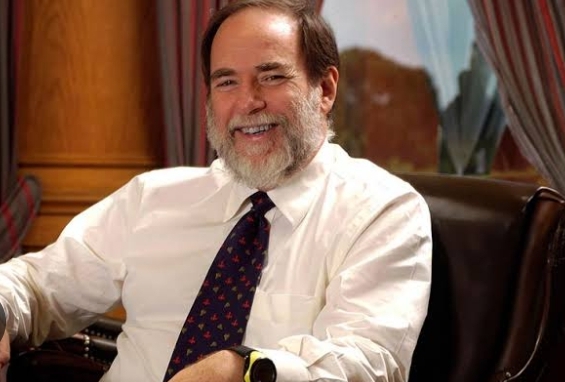Nicky Oppenheimer Biography: Diamond Magnate to Philanthropic Visionary

When you hear the name Oppenheimer, it instantly conjures images of diamonds sparkling across the globe. But behind that glittering legacy is a man who has shaped an industry, embraced responsibility beyond business, and nurtured a family devoted to making a difference. Nicholas F. Oppenheimer, known simply as Nicky, is not just a billionaire businessman; he is a steward of a heritage that blends wealth, social conscience, and a vision for a better future.
Nicky Oppenheimer Biography
Born into a world where diamond empires were the family business, Nicky Oppenheimer carved his own path with a blend of education, leadership, and a commitment to philanthropy that has earned him respect far beyond boardrooms. Let’s dive deeply into the life story of this influential South African figure, exploring his upbringing, education, career, family, achievements, and enduring legacy.
Early Life and Family Roots
Nicky Oppenheimer entered the world on June 8, 1945, in Johannesburg, South Africa, into one of the continent’s most illustrious families. His father, Harry Oppenheimer, was a towering figure in global business, famously serving as chairman of both De Beers and Anglo American, two of the largest companies in mining and diamonds. Harry’s influence shaped not only industries but the South African economy itself during a pivotal era of change and growth.
His mother, Bridget (née McCall), was less in the public eye but equally impactful, known for her quiet philanthropy and dedication to social causes. Together, Bridget and Harry nurtured a household steeped in business acumen, social responsibility, and a global perspective. Nicky’s younger brother, Anthony Oppenheimer, also shared in the family legacy, contributing to the family’s business and philanthropic pursuits, helping maintain the family’s standing across generations.
A Strong Educational Foundation
Understanding the importance of education, the Oppenheimers ensured that Nicky received some of the finest schooling available. His early education began at Ludgrove School, followed by Harrow School, both prestigious institutions known for shaping future leaders through rigorous academics and character-building experiences.
But it was at Christ Church, Oxford, where Nicky’s intellectual foundations truly solidified. He pursued Philosophy, Politics, and Economics (PPE), a challenging and comprehensive course that has produced many of the world’s leading thinkers and policymakers. Graduating with a Master of Arts degree, Nicky was well-equipped not just to inherit a family business but to understand the complexities of global economics, political structures, and ethical leadership qualities that would later define his approach to running the family empire.
Rising Through the Ranks: Nicky’s Career Path
Nicky Oppenheimer officially began his career in 1968 at Anglo American, the mining giant co-founded by his grandfather, Ernest Oppenheimer. From the outset, he demonstrated a sharp business mind and a keen understanding of the industry’s challenges and opportunities, quickly gaining respect from colleagues and industry peers alike.
By 1974, Nicky had risen to the position of director, and less than a decade later, in 1983, he was appointed deputy chairman. His leadership style was marked by pragmatism and a forward-thinking approach that sought to modernize and adapt the family business to changing times and global markets.
In 1984, Nicky took on the role of deputy chairman of the Central Selling Organisation, the marketing arm for the world’s diamonds. A year later, he was named deputy chairman of De Beers Consolidated Mines and chairman of the Diamond Trading Company. These positions put him at the heart of the global diamond trade, steering strategy and maintaining the family’s dominance in the market.
His crowning role came in 1998 when he became chairman of De Beers Group, a position he held until 2012. During this time, he led De Beers through a transformative era marked by new technological advancements, increasing competition, and growing concerns about the ethical sourcing of diamonds, navigating these challenges with a balanced hand.
In 2011, the Oppenheimer family made a landmark decision to sell their 40% stake in De Beers to Anglo American, ending a century-long direct family control of the company. Nicky retired as chairman the following year but left a lasting legacy of innovation, responsibility, and modernization that continues to influence the industry today.
A Family Life Rooted in Faith and Philanthropy
In the same year he began his professional journey, 1968, Nicky married Orcillia “Strilli” Lasch, daughter of the industrial magnate Helli Lasch. Strilli herself has been an active philanthropist, dedicating much of her time to charitable causes and community projects, supporting initiatives related to education, health, and social welfare.
Their marriage has been a partnership grounded in shared values, especially their strong Anglican faith, which has been a cornerstone of their family life. Together, Nicky and Strilli have three children, each continuing the Oppenheimer tradition in their own way.
Jonathan Oppenheimer, the eldest son, is deeply involved in the family’s business ventures, focusing on mining and investment. Their second son, also named Nicholas, balances business responsibilities with philanthropy, while their daughter Tanya maintains a quieter public profile but is known for her charitable work. The family collectively upholds a commitment to education, conservation, and social development, making philanthropy a key part of their legacy alongside business success.
Championing Ethical Diamonds and Social Causes
One of Nicky Oppenheimer’s most significant contributions to the diamond industry has been his leadership in establishing the Kimberley Process Certification Scheme. This international initiative was designed to eliminate “conflict diamonds,” stones mined in war zones and sold to finance armed conflict and human suffering.
Thanks to his efforts, the Kimberley Process became a global standard for ethical sourcing, transforming public perception and industry practices. Under his guidance, De Beers not only maintained its market dominance but also took responsibility for promoting transparency, sustainability, and corporate social responsibility.
Beyond diamonds, Nicky diversified his interests into conservation, agriculture, and real estate. He has been a passionate advocate for wildlife preservation, often supporting projects through family trusts and foundations. The Brenthurst Foundation, for example, focuses on promoting economic development and good governance across Africa, reflecting the Oppenheimer family’s commitment to the continent’s future and prosperity.
Recognitions and Legacy
Throughout his career, Nicky Oppenheimer has received numerous accolades for both his business leadership and philanthropic work. He is widely respected not only for safeguarding the Oppenheimer name but also for modernizing and ethically guiding the diamond industry, setting new standards for corporate responsibility.
His legacy is not simply wealth or power but the way he has balanced business success with social responsibility, setting a high standard for future generations of entrepreneurs and philanthropists. The story of Nicky Oppenheimer is one of vision, stewardship, and commitment to making a positive impact both within and beyond the business world.
A Wealth Reflecting Influence and Stewardship
As of mid-2025, Nicky Oppenheimer’s net worth is estimated between $10.4 billion and $12 billion, solidifying his status as one of South Africa’s richest individuals. But more than numbers, his wealth represents decades of strategic leadership, innovation, and a family heritage built on trust, stewardship, and a deep sense of responsibility.
Ranked 23rd on the Sunday Times Rich List in 2018 with £5.5 billion and recognized by Forbes as South Africa’s wealthiest in 2019 and 2020, his financial stature is a testament to his ability to navigate global markets while staying true to core values of ethical leadership and social impact.



